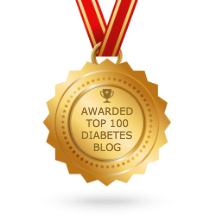We don’t know with certainty yet. But a recent study suggests that non-caloric artificial sweeteners do indeed cause overweight and type 2 diabetes in at least some folks. The study at hand is very small, so I wouldn’t bet the farm on it. I’m not changing any of my recommendations at this point.
The proposed mechanism for adverse metabolic effects of sugar substitutes is that they alter the mix of germs that live in our intestines. That alteration in turn causes the overweight and obesity. See MedPageToday for the complicated details. The first part of the article is about mice; humans are at the end.
Some quotes:
“Our results from short- and long-term human non-caloric sweetener consumer cohorts suggest that human individuals feature a personalized response to non-caloric sweeteners, possibly stemming from differences in their microbiota composition and function,” the researchers wrote.
The researchers further suggested that these individualized nutritional responses may be driven by personalized functional differences in the micro biome [intestinal germs or bacteria].
***
Diabetes researcher Robert Rizza, MD, of the Mayo Clinic in Rochester, Minn., who was not involved with the research, called the findings “fascinating.”
He noted that earlier research suggests people who eat large amounts of artificial sweeteners have higher incidences of obesity and diabetes. The new research, he said, suggests there may be a causal link.
“This was a very thorough and carefully done study, and I think the message to people who use artificial sweeteners is they need to use them in moderation,” he said. “Drinking 17 diet sodas a day is probably a bad idea, but one or two may be OK.”
I won’t argue with that last sentence! (Unless you have phenylketonuria and want to use aspartame.)
Finally, be aware that several clinical studies show no linkage between human consumption of non-caloric artificial sweeteners and overweight, obesity, and T2 diabetes.
Steve Parker, M.D.




![MP900438648[1]](https://diabeticmediterraneandiet.files.wordpress.com/2012/01/mp9004386481.jpg?w=184&h=229)



